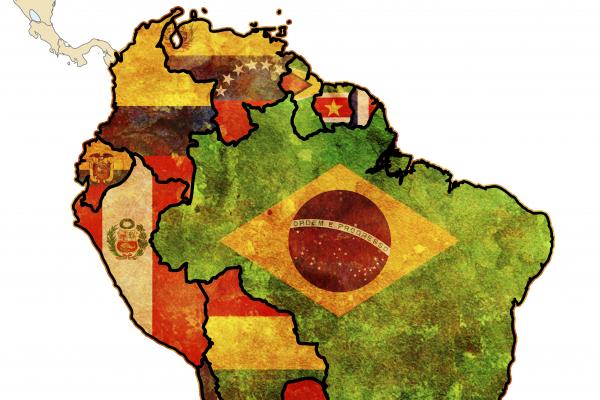JON SOBRINO LAUGHS ever so slightly at my question. His office in the Monseñor Romero Center in San Salvador is a paper cavern, a place where a theological archeologist digging to understand the highs and the lows of liberation movements within the church would find a mother lode of artifacts.
Where is liberation theology going from here under Pope Francis? Sobrino, perhaps one of the most prolific liberation theologians, is thin and thoughtful. He considers his words: Liberation theology is a way of thinking about how a Christian must live—in active, engaged struggle for the flourishing of all life. Liberation is the primary movement of the Holy Spirit. It is the duty of those baptized into the life, death, and ministry of Jesus Christ to live this out, immediately and urgently.
In March 2013, when Argentine Cardinal Jorge Mario Bergoglio, Sobrino’s fellow Jesuit, became pope, liberation theologians and practitioners took a deep collective breath—what would happen next?
The popes of the 1980s and ’90s had removed all support for the promoters of liberation theology who had lived out the “preferential option for the poor,” born from Vatican II and the 1968 Medellín conference of Latin American bishops. The church’s identification with the poor was a direct strike against the closed oligarchic structures that had strangled the lands and peoples since the European conquest.
The oligarchy, which controlled governments and armies, struck back. The Latin American oligarchic wars created countless liberation Christian martyrs.
Efforts toward recognizing the Christian martyrs and saints of the wars were blocked by church officials. Soon conservative church hierarchs were again ascendant. The six instructors of the University of Central America—Sobrino’s brother Jesuits—their housekeeper, and her daughter who were brutally murdered by members the U.S.-backed Salvadoran military were not recognized in any category as protectors of the faith. The murdered bishops of Latin America—including Enrique Angelelli of Argentina (1976), Juan José Gerardi of Guatemala (1998), and Óscar Romero of El Salvador (1980)—were left off of the list of nearly 500 saints proclaimed by Pope John Paul II.
Additionally, liberation theologians were disowned and prevented from writing. The Vatican’s doctrinal office, then headed by Cardinal Joseph Ratzinger (who became Pope Benedict XVI), condemned liberation theology for its supposed “serious ideological deviations.” Brazilian theologian Leonardo Boff was silenced in 1985. Peruvian Gustavo Gutiérrez, called the “father of liberation theology,” was censured. Even Sobrino was notified by the Vatican that disciplinary measures were under way against his theological and doctrinal teaching.
But with the arrival of Pope Francis, a fresh wind is blowing. Almost immediately, Francis set about restoring relations with Latin American liberation theologians. Boff and Gutiérrez have both met with the pontiff, while Sobrino speaks of “Papa Francisco” with his usual caution—hopeful, slightly ironic, infinitely patient.
The greatest sign that Pope Francis is doing something different came on Feb. 3, when the Vatican office that promotes individuals for sainthood declared that El Salvador’s assassinated Archbishop Romero was officially a martyr of the church, that his murder had been an act of hatred for the faith.
This is more than a fine canonical point. It is a remarkable statement, vindicating the courageous death of many other martyrs. Those who killed them would have firmly called themselves Christians. The Vatican has (at last) proclaimed that they were in fact not Christians at all, but were enemies of the faith.
For Sobrino, liberation theology, no matter what it is called, is the inevitable moving of the Holy Spirit, God’s unstoppable renovation of the whole of creation. “San Romero de las Américas” is already a saint in the hearts of the people. He has been for 35 years. The people in El Salvador, in Latin America, and around the world have declared this to be God’s truth, no matter what is said thousands of miles away in Rome.

Got something to say about what you're reading? We value your feedback!
